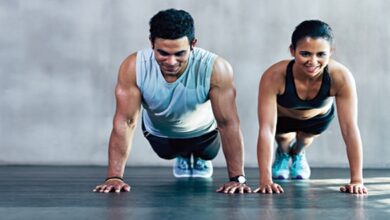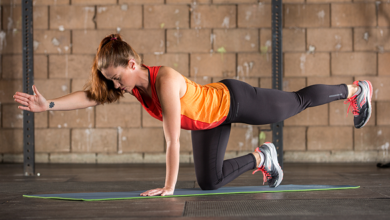Eating Healthy Vs. Achieving Your Goal Physique

With the thought of achieving a great physique, people instantly think of eating healthy. Yet eating healthy foods doesn’t necessarily mean you’re achieving your goal physique. While acquiring your best physique doesn’t exactly mean you’re eating healthy. To eat healthily generally means you provide your body with enough nutrients to function efficiently. Your body demands a specific amount of micronutrients (vitamins and minerals) and macronutrients (fats, proteins, and carbs) in order to work at its best ability.
It is your responsibility to fulfill your body’s nutritional requirements in order to maintain good health. Achieving a great physique usually involves losing fat or gaining muscle. In order to lose fat, an individual must be in a calorie deficit where your body burns more calories than the number of calories you eat and drink. Gaining weight requires one to do the opposite, wherein in a calorie surplus you consume more calories than the amount your body burns.
WHAT IS A CALORIE?
You hear about calories all the time, but exactly what does it mean? A calorie is a unit that measures energy. The food you eat isn’t measured in weight or size, but by how much energy it contains. When you hear something contains 100 calories, it’s a way of describing how much energy your body could get from eating or drinking it1. Just as the amount of gas pumped into a car is measured in gallons, the different food or drinks you consume is measured in calories.
The body breaks down food in a unique way, so the amount of calories is a way of knowing how much energy your body will get from anything you eat or drink. ‘Calorie’ is simply a technical word for ‘energy’.
ARE CALORIES BAD FOR YOU?
Calories are not bad for you since your body needs them for energy. Yet eating too many calories and not burning enough of them off through physical activity can lead to weight gain over time. Consuming too few calories over time will not allow your body to function properly and can negatively affect your health. Foods such as lettuce contain very few calories (1 cup of shredded lettuce has less than 10 calories), and whole foods like peanuts contain a lot of calories (½ cup of peanuts has 427 calories) 1. Knowing how many calories your body needs each day will help you choose which foods are best for you.
HOW DOES YOUR BODY USE CALORIES?
Your body needs calories just to stay alive and operate properly. This energy is used for basic functions such as keeping your heart beating and lungs breathing. Calories are essential for all basic and complex functions including the regulation of body temperature and the operation of every cell in your body. The more activity you do is the more calories you burn. Your body also needs calories in order to grow and develop. You burn calories without even thinking about it such as during the digestion of food, recovery of muscles after exercise, and even while you sleep.
HOW MANY CALORIES DO YOU NEED?
People differ in size and have different metabolisms, so the number of calories a person should consume will vary depending on several factors. These factors include a person’s height, weight, age, and daily activity level. The bigger a person is, the more calories that person may need, and vice versa. Even though two people can have the same body measurements, the number of calories they need can differ because of the way their body metabolizes what they consume.
Calorie calculators are available online, which can be used to determine how many calories your body needs based on the necessary factors. If you eat more calories than your body needs, then the extra calories are converted into fat. If you eat fewer calories than you need, then your body uses your stored body fat as the energy it needs to function. Understanding the number of calories you need will help you better control your weight.




